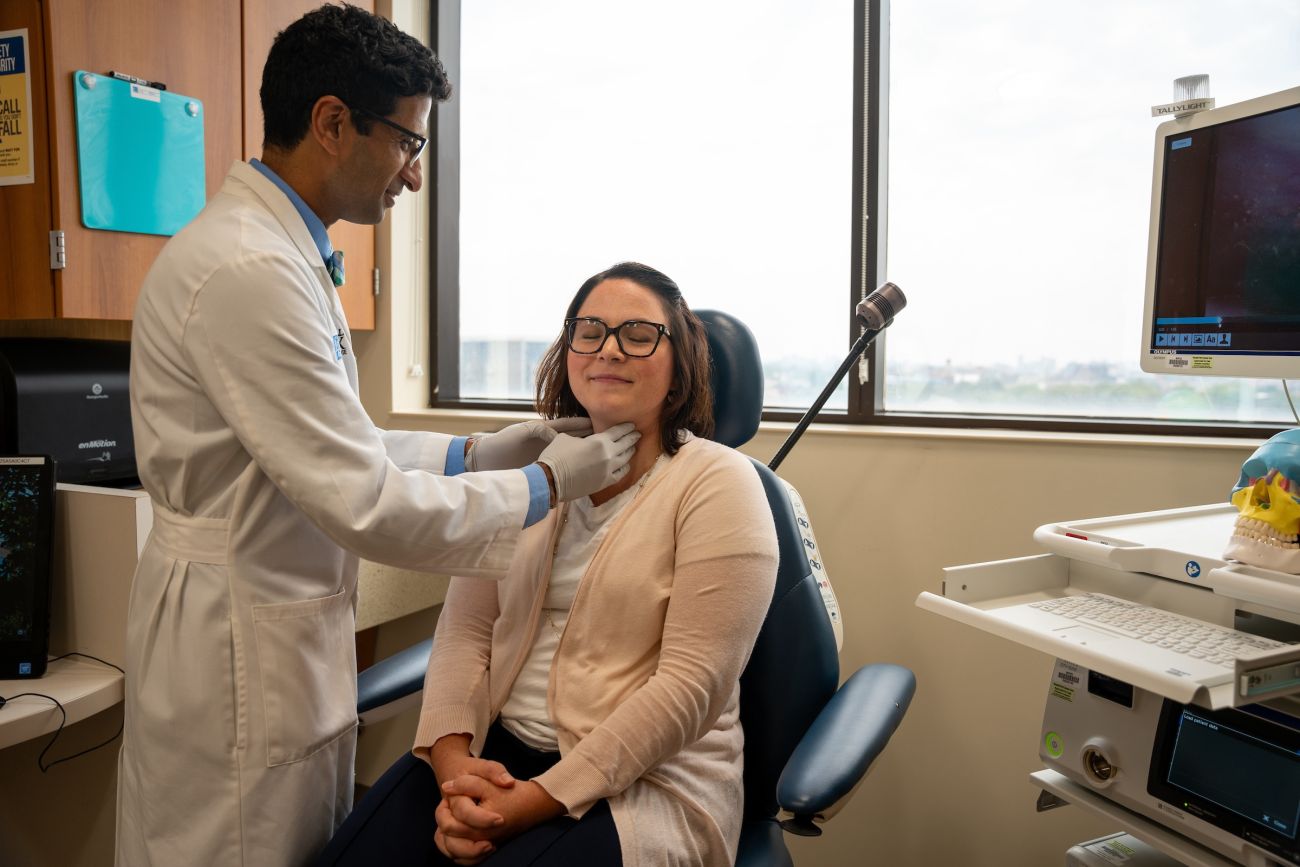In its earliest stages, throat cancer symptoms may be attributed to a cold, flu, allergies or acid reflux. But it's important to recognize the warning signs, especially if you are currently or formerly a smoker as tobacco use increases the risk for throat cancer.
Signs of throat cancer
One sign, as you might imagine, is a sore throat. Be sure to tell your doctor about any other symptoms you may experience, especially:
- Sore throat that lingers more than a month.
- Difficulty swallowing
- A lump in your throat. The sensation that you have a lump in your throat is called a globus and may have several causes. But with throat cancer, you may have an actual lump that feels firm and painful all the time, but especially when swallowing.
- Persistent hoarseness and other changes to your voice.
- Ear pain
When to worry about difficulty swallowing
A sore throat that’s caused by a cold will usually subside within a week. But if a sore throat lingers more than four to six weeks, it’s time to get checked by your primary care physician. All of these symptoms can accompany a range of conditions from the common cold to acid reflux to allergic reactions. But if they persist — especially difficulty swallowing, ear pain and changes to your voice — it’s essential to consult with your primary care physician as soon as possible to determine what may be the cause.
If cancer is the diagnosis, catching it in its earliest stages makes it the most treatable and will lead to better outcomes and quality of life.
Cancers of the Head & Neck
Roswell Park brings together a team of highly experienced specialists who will review your case to come up with the very best plan for treatment and recovery.
What are the treatments for throat cancer?
The Head & Neck Department at Roswell Park Comprehensive Cancer Center holds a weekly meeting called a tumor board, during which our experts discuss head and neck cancer patients and determine the best treatment approach for each individual. Their recommendations are based on guidelines established by the National Comprehensive Cancer Network (NCCN), clinical evidence and the experience of the physicians in our group.
The best treatment for you will depend on the location of the tumor, its size and stage. Treatment options may include minimally invasive surgery to remove the tumor, radiation therapy and/or chemotherapy.



